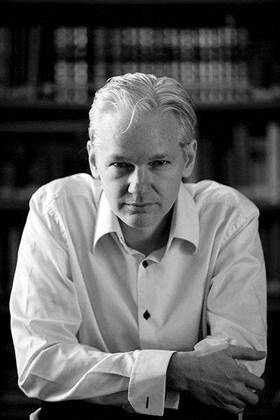The Federal Attorney-General has spoken out against WikiLeaks’ release of 251,287 classified, uncensored US diplomatic cables to the public last week.

Attorney-General Robert McClelland noted that WikiLeaks had previously redacted information that could put the safety of individuals or national security at risk.
But no information was redacted from documents made available last Tuesday, which included the identity of an officer of Australia’s spy agency, ASIO.
McClelland said ASIO and other Government agencies were working through the documents to determine the extent of their impact on national interests.
Journalists from the Sydney Morning Herald found that the documents publicly identified more than 3300 US diplomatic sources whose identities were marked “strictly protect”.
The Attorney-General highlighted section 92 of the ASIO Act, which made it illegal to publish, or cause to be published, the identity of an ASIO officer. Offenders could be imprisoned for one year.
“This disturbing development confirms the Government’s position regarding WikiLeaks and others disseminating classified material,” McClelland said last week.
He cited the Australian Government as saying “the large scale distribution of hundreds of thousands of classified United States Government documents is reckless, irresponsible and potentially dangerous”.
WikiLeaks’ dramatic release came more than eighteen months after ‘Cablegate’, when it began releasing the quarter-million cables in redacted form.
Of the 251,287 documents released, some 9755 concerned Australia. Cables also revealed that the US had pressured the European Union to approve the Oracle-Sun Microsystems merger.
Late last year, volunteers of the whistleblower site placed a compressed, encrypted version of all WikiLeaks data online.
The encryption passphrase was revealed in a book by The Guardian journalist David Leigh earlier this year, and republished in German magazine Der Freitag last month.
WikiLeaks chose to publish the unedited cables after knowledge of the passphrase “reached critical mass” in August.
“Over time WikiLeaks has been building up, and publishing, the complete Cablegate ‘library’... that careful work has been compromised as a result of the recklessness of the Guardian,” WikiLeaks stated.
The organisation said it had commenced “pre-litigation action against the Guardian and an individual in Germany who was distributing the Guardian passwords for personal gain”.



_(36).jpg&h=140&w=231&c=1&s=0)
_(28).jpg&h=140&w=231&c=1&s=0)






 iTnews Executive Retreat - Security Leaders Edition
iTnews Executive Retreat - Security Leaders Edition
 iTnews Cloud Covered Breakfast Summit
iTnews Cloud Covered Breakfast Summit
 The 2026 iAwards
The 2026 iAwards












_(1).jpg&h=140&w=231&c=1&s=0)



